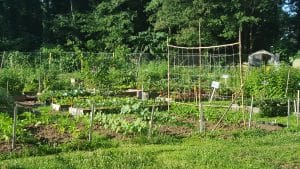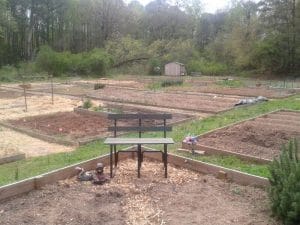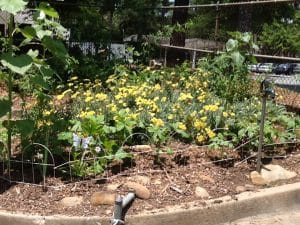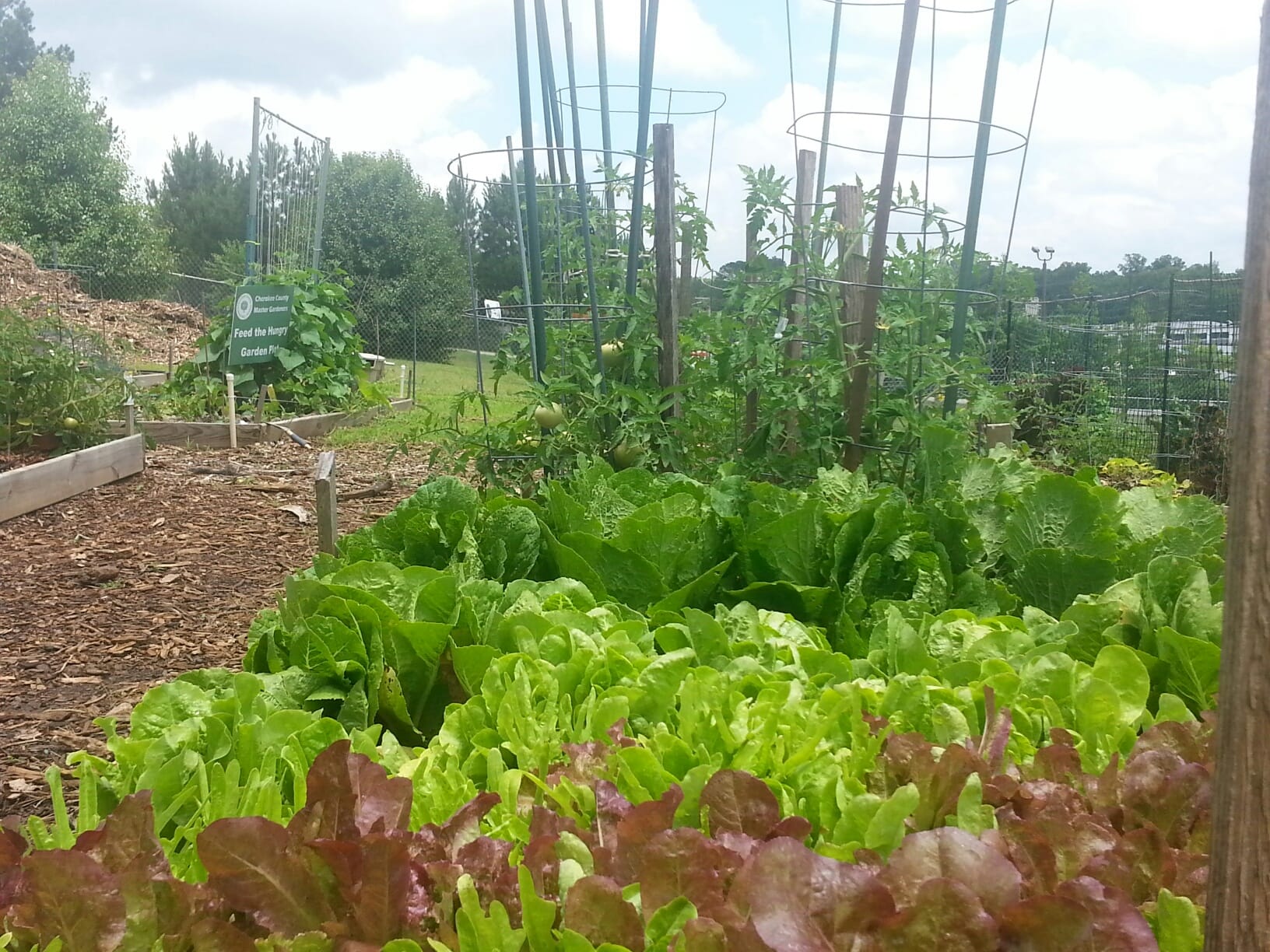This week we are fortunate to have Tim Daly as a guest blogger. Tim is a UGA Cooperative Extension agent for Gwinnett County, Georgia. Those of you work in community gardens in Gwinnett probably already know Tim. We are excited he is available to clear up any confusion about organic gardening. Tim writes….
Organic gardening has become quite popular among gardeners, but a considerable amount of confusion exists about exactly what it is and what it is not. Organic gardening uses a combination of methods and strategies to produce healthy plants.
It also requires a thorough understanding of the ecological relationships among soil, plants and other organisms in the garden. Contrary to popular belief, organic gardening is neither a method of pest control, nor the avoidance of the use of all chemical pesticides.

Organic starts with healthy soil
Organic gardening requires a long-term outlook in regard to soil preparation. Developing healthy, fertile soil helps to provide plants with necessary nutrients. Organic gardeners use natural, organic fertilizers and mineral amendments to improve the overall quality and fertility of their garden soil.

Most synthetic fertilizers provide nutrients that are immediately available to the plant. However, they do not contribute to the overall health and long-term fertility of the soil.
Organic matter in the soil is important because it breaks down and releases nutrients for the plants. It also improves the soil’s water- and nutrient-holding capacity and provides a habitat for beneficial microorganisms. Organic matter in the soil can be increased by the addition of manure, topsoil, peat moss, compost and other suitable materials.
The garden is an ecosystem
The first key to successful pest control is to begin by purchasing healthy, quality plants that are free of insects and diseases. Next, encourage beneficial insects, such as lady beetles, lacewings and certain species of wasps, to stay in your garden. Certain herbaceous plants, such as dill, wild mustards and yarrow, provide shelter and food for these beneficial organisms. Plant these among your vegetables.

Choose plants that have varieties with known resistance to diseases and insects as a method of reducing pests. For example, some varieties of tomatoes have been bred to resist certain fungal diseases.
Remove and dispose of plant material, such as leaves, branches and fruit, that has fallen to the ground. Reduce the incidence of disease by keeping plant leaves and stems as dry as possible. Use drip irrigation rather than overhead watering to conserve water and reduce the amount of time plants remain wet.
Organic pesticides are available
When necessary, use organic pesticides. There are several choices available. Botanicals, such as rotenone, pyrethrum and neem oil products, are plant-derived materials.
Microbial pesticides that control certain insect pests are formulated from microorganisms or their byproducts. An example is DiPel, which contains a species of bacteria that targets certain caterpillar pests.
Minerals, such as sulfur and copper, are the primary organic materials used to control fungal and bacterial diseases. Always remember that even if a product is considered to be organic, it is still a pesticide. Exercise caution when using these products. Some organic pesticides are as toxic as or even more toxic than many synthetic chemical pesticides.
There are pros and cons to organic gardening. Understanding the basics of this practice and what it involves will help you succeed in having healthy, productive plants no matter what growing method you follow.
Thanks, Tim, for this great information! Tim is a great resource for vegetable gardeners, being a frequent connoisseur of homegrown tomatoes. You can reach Tim at UGA’s Gwinnett County office at tdaly@uga.edu.
Happy Organic Gardening!
- ParSLAY the Day! - June 12, 2024
- 6th Annual Great Southeast Pollinator Census - May 28, 2024
- Are you ready for Pepper Palooza? - July 5, 2023

Great primer! Thanks, Tim!
This was one of my inspirations when I was just starting my garden (https://www.gardenloka.com/). Now I also have my own blog because of this post. Thanks
Fantastic! We strive to inspire!